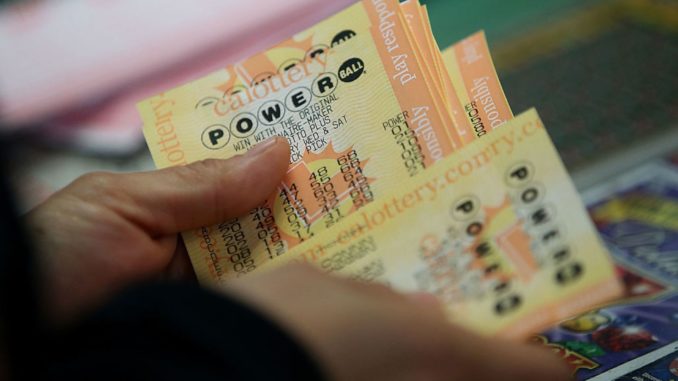
With no one hitting all the numbers in Saturday night’s Powerball drawing, the jackpot has surged again.
Now at an estimated $381 million, the top prize has been rolling higher for more than two months. (The winning numbers in Saturday night’s drawing were: 1, 19, 25, 27, 68; Powerball: 21.)
Meanwhile, a single ticket sold in New Jersey nabbed the $267 million Mega Millions jackpot in that game’s Friday night drawing.
The chance of winning Powerball is about 1 in 292 million. Nevertheless, at some point, there will be a jackpot winner — and the IRS won’t waste time taking at least some of the loot
Lottery officials are required to withhold 24 percent of big lottery wins for federal taxes. And that’s only the start of what the winner will fork over to Uncle Sam.
“That withholding is nowhere near enough,” said Ed Slott, a CPA and founder of Ed Slott & Co. in Rockville Centre, New York. “You’d have to set aside a lot for taxes.”
Winners get to choose whether to take their money as an annuity over three decades or as an immediate payment. Most choose the upfront cash, which for the Powerball jackpot is $228.1 million.
The 24 percent federal withholding would reduce that cash option by $54.7 million. However, because the top federal tax rate of 37 percent applies to income above about $510,000 for single tax filers ($612,000 for married couples filing jointly) the winner can count on owing more — a lot more
For illustration purposes: If the winner had no reduction in income — for example, significant charitable contributions from the winnings that reduced taxable income — another 13 percent, or $29.7 million, would be due to the IRS ($84.4 million in all).
And that’s before state taxes, which can range from zero to more than 8 percent, depending on where the ticket was purchased and where the winner lives.
In other words, taxes could eat up more than 45 percent of the haul
BY CNBC NEWS
